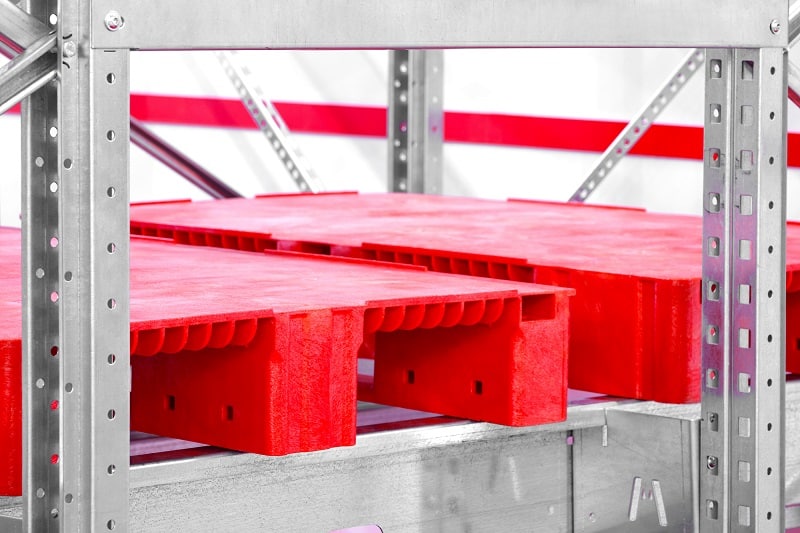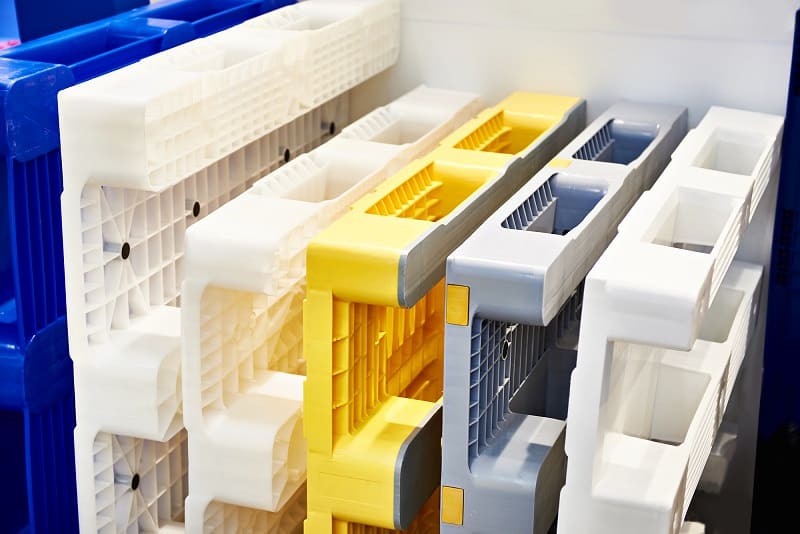Why We Use Plastic Pallets to Export Goods?

In the modern era, there are few products manufactured that don’t include plastic. In many areas, plastic has replaced natural materials like wood and metal because of its resiliency, recyclability, and affordability. In the export shipping industry, plastic has become the go-to material for crafting pallets for goods that will be shipped overseas.
Plastic pallets are now the preeminent style of pallet used for exports and overseas shipping for reasons that may not be obvious to those not in the industry. For those in the exporting business, the bottom line usually rules the decision-making process. When it comes to pallet materials, plastic offers a great bang for the pallet buck. They maintain a low price point because they are made from materials collected by plastic recyclers who buy from those selling plastic scrap in Michigan and other places. Keep reading to learn more about the benefits offered by plastic pallets when it comes to shipping goods overseas.
Versatile in Size, Shape, and Load
There is no standard pallet size and weight that is recognized universally, which can lead to a great deal of variance in shipping costs and storage capacity for items shipped on pallets internationally. Plastic pallets can be made to meet almost any requirement, however, as the cost of molding plastic is low, and the range of size and weight options is great. They can be designed to meet almost any specification necessary to move products from one nation to another, which is one of the reasons plastic pallets are the predominant type used for international shipping.
Don’t Require Treatment
In years past, most pallets were made from solid wood. However, the use of natural materials gave way to the transmission of pests and insects from one nation to another that cause harm to natural habitats. Therefore, the International Standards for Phytosanitary Measures, or ISPM-15, guidelines require that all solid wood pallets must be treated before being moved across national borders. Not only must wood pallets be treated, but there also must be documentation carried to prove the treatment before pallets can be shipped. Plastic pallets, however, are exempt from ISPM-15 standards, which can save exporters money and time.
Lightweight
Plastic pallets boast an equivalent load capacity at a lighter weight than wood, which is an important factor in export shipping. Even a difference in weight of a few ounces is magnified exponentially when a shipment includes several hundred pallets and stretches over thousands of miles. That difference in weight can translate into a large discrepancy in shipping costs if shipping through the air, which is one reason why the lighter plastic pallets are preferred over wood for export purposes. It’s simply cheaper to ship plastic pallets, even when they are shipped over the sea.
Impervious to Weather
Plastic pallets have an added benefit of being resistant to weather that could damage or compromise wooden pallets. For example, a plastic pallet can be stored outdoors without experience warping or splitting caused by excessive rainfall or moisture. However, a wood pallet could be severely compromised and potentially rendered unusable by the effects of exposure to water.
Efficient En Route
Another unexpected benefit of plastic pallets is that because they are ISPM-15 exempt, there’s little risk of delay in the shipping process. However, with wooden pallets, a failure to produce documentation regarding pallet wood treatment could stop a shipment in its tracks, leading to shipping delays that can cause problems for customers and exporters alike.

Recyclable
Plastic pallets also provided the added benefit of being environmentally friendly. In many cases, they are made from recycled plastic leftover from industrial uses. When they are damaged in shipment or worn out, they can be recycled into new pallets without requiring additional plastic production. Plastic that would have otherwise been waste is given new life in the form of plastic pallets.
Because of the many benefits they offer over wood pallets, plastic pallets are quickly becoming the predominant type of pallet used for shipping goods overseas. They’re lightweight, resilient and exempt from the regulatory red tape that can impact wooden pallets. To learn more about the reasons that plastic pallets are best for export shipping, contact Seraphim Plastics at (888) 423-1927.